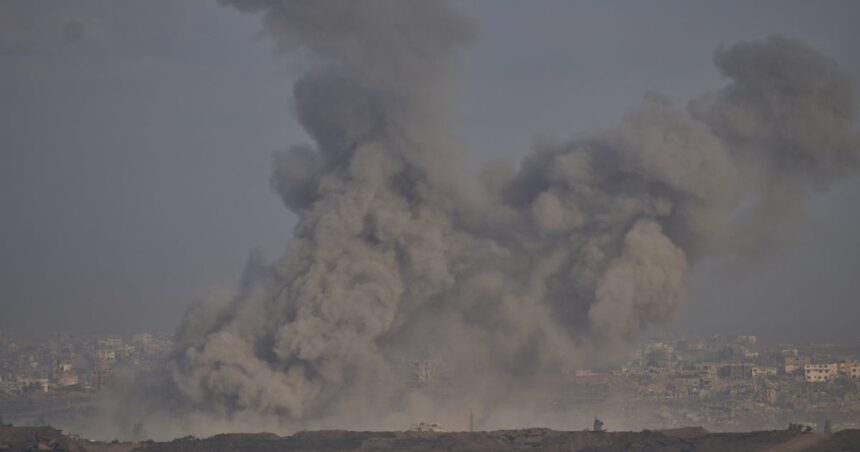As a Gaza water crisis deepens, last night’s Israeli airstrike hit a crowded water collection point in northern Gaza, killing 18 Palestinians, including 11 children according to Palestinian health officials. I spent the morning verifying details with medical personnel at Kamal Adwan Hospital, where emergency rooms were overwhelmed with wounded families.
“They were just waiting for water,” said Dr. Hussam Khalid, showing me his bloodstained surgical scrubs. “Some of the children arrived holding empty containers they had brought to fill.“
The Israeli military claimed it targeted Hamas fighters operating near civilian infrastructure, stating their intelligence indicated militant activity in the vicinity. Hamas officials denied any military presence at the water distribution point, calling the strike “a deliberate massacre of civilians seeking basic necessities.”
This incident occurs as water access in northern Gaza has become increasingly desperate. The UN reports that functioning water infrastructure has declined by nearly 70% since October, with most residents now receiving less than 3 liters per day—far below the humanitarian minimum standard of 15 liters.
“We haven’t had running water for weeks,” said Rania al-Najjar, 43, whose nephew was wounded in the strike. “When we heard water would be distributed, everyone rushed there. It was our only option.”
The death toll in Gaza has now surpassed 38,000 according to the Hamas-run Gaza Health Ministry, figures the UN considers generally reliable despite limited verification capabilities. Israeli officials maintain that approximately one-third of casualties are combatants, though independent verification remains challenging.
The International Committee of the Red Cross yesterday warned of “catastrophic public health implications” from Gaza’s water crisis, noting that waterborne diseases are spreading rapidly through displacement camps. UNICEF reports that cases of diarrhea in children under five have increased 2,500% since the war began.
Yesterday’s airstrike highlights the increasingly dire humanitarian situation in northern Gaza, where Israeli forces have maintained tight restrictions on aid deliveries while conducting repeated military operations. The area around Jabalia, where the strike occurred, has been under severe restrictions since early May, with residents describing near-total collapse of basic services.
The UN Security Council convened an emergency session this morning, with several member states calling for immediate humanitarian pauses to facilitate water and medical aid delivery. The U.S. representative called the deaths “deeply concerning” while urging greater humanitarian access, stopping short of direct criticism of Israeli military operations.
Meanwhile, in the occupied West Bank, Israeli forces conducted raids in several locations overnight, arresting 34 Palestinians in what the military described as counter-terrorism operations. Palestinian officials reported three civilians killed during these operations, including a 16-year-old boy in Jenin.
Regional tensions continue to escalate, with Hezbollah firing approximately 40 rockets into northern Israel yesterday, prompting Israeli airstrikes on what it described as militant infrastructure in southern Lebanon. No casualties were reported on either side.
As I left the hospital in Gaza, emergency workers were still receiving wounded from the water collection point. Among them was 9-year-old Samir, clutching a small plastic bottle as doctors treated shrapnel wounds to his legs.
“He refused to let go of it,” a nurse told me. “It’s the bottle he brought to fill with water for his family.“






